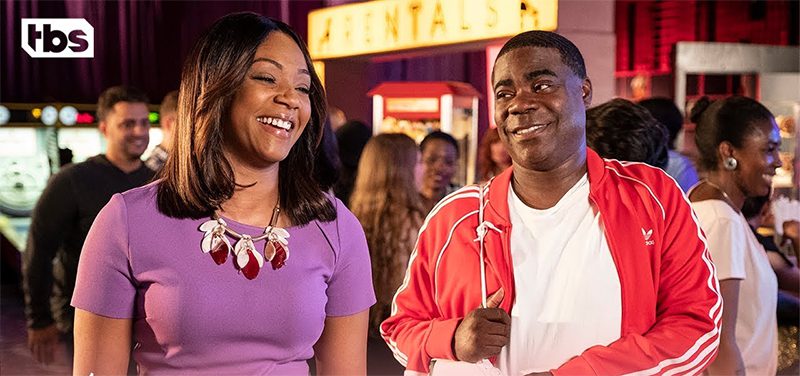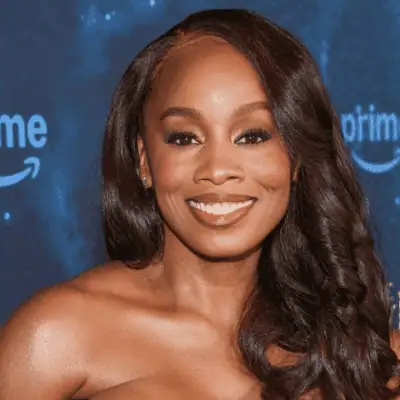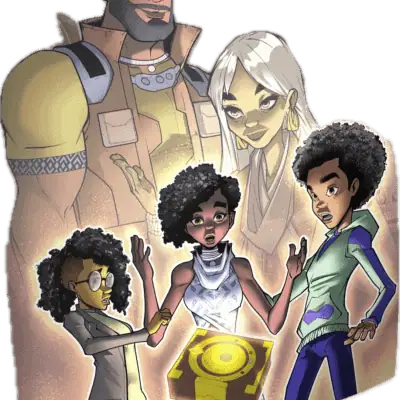
The Last O.G. kicks off its sophomore season right where it left off, with lovable lead character Tray (Tracy Morgan) navigating a city that is no longer the same, and his new role as a father to teenager children he has only just met. This time around, however, Tray tries to get in where he fits in which means learning how to be a part of a blended, interracial family, as well as how to pursue his dreams and make a living in a world set against formerly incarcerated persons like himself. Last O.G.’s appeal still lies in the intersection of the old and the new which is not only witnessed in the highly gentrified Brooklyn, but even within gender roles and the rifts highlighted by cultural differences within romantic relationships.
In the first episode, a guilt laden Tray attempts to somehow capture the important moments he missed while being locked up by seeking out a video of his twins’ birth. Tray’s motivation occurs after one of his roommates at the halfway house shares that his girlfriend has just given birth to their child. The roomie also has video, pictures, and wealth of knowledge on the birthing process. In fact, all of the men do, and Tray feels left out. It appears that not only has the neighborhood changed but so have the expectations of fatherhood. Long gone are the days where men are sent out the room while women labor; it is no longer acceptable for expectant fathers to just serve as a hand to be squeezed and a person to be yelled at. They are involved in all aspects of the pregnancy and the birth and know about crowning, delayed cord cutting, etc. Even Cousin Bobby who is childless and otherwise a bit dimwitted has something intelligent to contribute to the conversation amongst the men.
Since his opportunity to be that kind of supportive partner and expectant dad has long passed, Tray attempts to grab a hold of something by watching the birth of his twins in a video. He eventually does have the opportunity to watch it along with ex-girlfriend Shay (Tiffany Haddish) to whom he delivers a heartfelt apology for his absence. Through flashbacks we get to see Shay’s struggle of being a single mom with twins and her disappointment at her mother who relapsed and stole her television and VCR to buy drugs. We also see how through connecting with other mothers she was able to land a lucrative job and eventually return to school and build a career. Her newly redefined relationship with Tray presents and opportunity for the complication of stereotypes; Tray is not your stereotypical black thug or ex-con and Shay is not your stock ghetto black woman. Tray and Shay are able to forgive and heal and learn how to make space for each other in a way that is respectful of everyone’s needs and boundaries.
Misunderstandings between Shay and her white husband Josh (Ryan Gual) are another site of exploration in the show. Josh informs her that she has a “history of scaring white people,” including a librarian who shh’s her, a cashier who asks for her ID and neighbor who approaches her. Shay informs her husband that perhaps there is a reason that she went off those people – racism. The librarian accused her of making noise and called security on her when she was asking a group a white girls loudly laughing to keep it down. The cashier asked her for her ID because she did believe that her credit card belonged to her, but had not bothered to ask the woman in front of her for ID. And the neighbor called the police on her when she was trying to get her keys out of her locked car. By the end of the episode Shay gets Josh to consider her struggles with racism and to have her back no matter what. Albeit a bit clean cut, its exploration of the how racial differences can impact romantic relationships is much needed especially in comparison to what seems to be a popular trope of posing interracial relationships as a semi pseudo panacea to racism.
As the season goes on, Tray will continue to pursue his passion of cooking and working for himself and being a present father. Shay and her husband Josh will learn to navigate their cultural differences, with him having to try to consider the racism and sexism she experiences as a black woman. And hopefully, if we are fortunate, we will see lots more of Cousin Bobby (Allen Maldonado) and the #CousinBobbyBAE movement will take flight.





